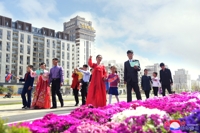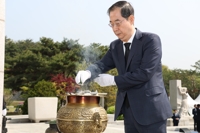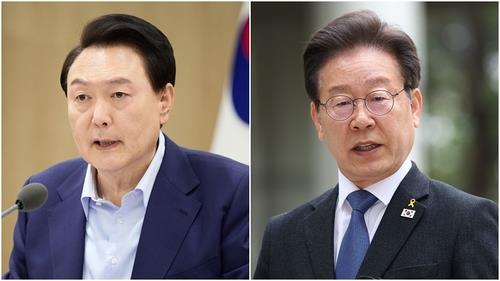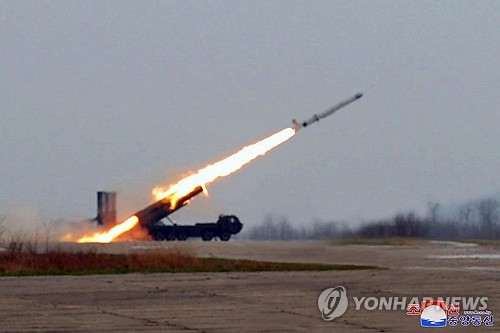S. Korea ordered to pay Lone Star US$216.5 mln in investor-state suit
By Kim Han-joo
SEOUL, Aug. 31 (Yonhap) -- An international tribunal ordered South Korea to pay the U.S. private equity firm Lone Star Funds US$216.5 million, bringing an end to a decadelong legal battle over the firm's claims it suffered massive losses due to Seoul's delay in approving a lucrative deal, officials said Wednesday.
The Washington, D.C.-based International Centre for Settlement of Investment Disputes (ICSID) delivered the verdict in the investor-state dispute settlement suit that Lone Star filed in 2012 to demand US$4.68 billion in compensation from South Korea's government.
The ordered amount is 4.6 percent of Lone Star's demand.
The Texas-based firm claimed its 2007 plan to sell a controlling stake in the now-defunct Korea Exchange Bank (KEB) to global banking giant HSBC fell through because Seoul's financial regulatory authorities delayed approval of the deal.
Lone Star, which acquired the KEB stake for 1.38 trillion won (US$1.02 billion) in 2003, had planned to sell off the stake to HSBC for about 5.94 trillion won but eventually ended up selling it to Seoul-based Hana Financial Group for some 3.9 trillion won in 2012.
Lone Star claimed South Korea deliberately delayed approval of the deal, and deprived the firm of fair and equitable treatment and other protections guaranteed in the investment treaty.
South Korea rejected the claims, arguing it treated Lone Star equally and fairly, as in the case of domestic entities, in accordance with international laws and local regulations.
The Seoul government has also maintained there were legitimate reasons to hold up the deal with HSBC, citing legal issues involving the firm were going on at the time, including allegations of stock manipulation in the course of Lone Star's acquisition of KEB's credit card unit.
In another issue, Lone Star claimed local tax authorities applied inconsistent standards, seeking to reimburse the taxes it paid on the proceeds from selling off its assets because it is technically the subsidiaries based in either Belgium or Luxembourg that carried out the transactions.
The firm claims it should be exempt from taxes under investments treaties South Korea has with the European nations. But South Korea says the subsidiaries are paper companies and should not be protected by investment treaties.
The ICSID's decision is unlikely to be reversed, though there is a process to seek its cancellation, according to legal experts.
The latest ruling is expected to deal a blow to South Korea, which is currently involved in five other investor-state dispute arbitrations.
The ruling was closely watched in South Korea not only because of the amount of money involved but also the alleged involvement of several incumbent high-ranking officials in the issue.
Allegations arose earlier this year that Prime Minister Han Duck-soo was paid a total of 150 million won between November 2002 and July 2003 as an adviser for the local law firm Kim & Chang, which represented Lone Star at the time.
Lone Star's entry into and exit from South Korea has been a target of criticism in South Korea amid widespread public perceptions that the firm made huge profits by taking advantage of the country's economic difficulties in the wake of the Asian financial crisis in the late 1990s.
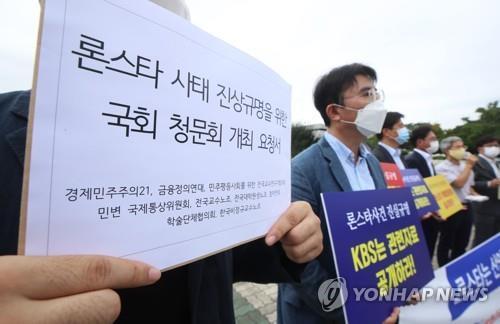
Civic activists call for a parliamentary hearing on the investor-state dispute settlement between Lone Star and the South Korean government in a press conference held in Seoul, in this file photo taken September 2020. (Yonhap)
khj@yna.co.kr
(END)
-
 Overdue debut of Korean abstract art pioneer Yoo Young-kuk at Venice Biennale
Overdue debut of Korean abstract art pioneer Yoo Young-kuk at Venice Biennale -
 Defense chief says N. Korea's hypersonic missile 'unsuccessful' in last-stage glide flight
Defense chief says N. Korea's hypersonic missile 'unsuccessful' in last-stage glide flight -
 Relax, immerse yourself in scents at Venice Biennale's Korean Pavilion
Relax, immerse yourself in scents at Venice Biennale's Korean Pavilion -
 N. Korea has capability to genetically engineer biological military products: U.S. report
N. Korea has capability to genetically engineer biological military products: U.S. report -
 S. Korea marks 30th anniv. of Korean Pavilion at Venice Biennale with contemporary art
S. Korea marks 30th anniv. of Korean Pavilion at Venice Biennale with contemporary art
-
 Overdue debut of Korean abstract art pioneer Yoo Young-kuk at Venice Biennale
Overdue debut of Korean abstract art pioneer Yoo Young-kuk at Venice Biennale -
 Relax, immerse yourself in scents at Venice Biennale's Korean Pavilion
Relax, immerse yourself in scents at Venice Biennale's Korean Pavilion -
 Artist Lee Bae captures ethereal Korean aesthetics at Venice Biennale
Artist Lee Bae captures ethereal Korean aesthetics at Venice Biennale -
 S. Korea marks 30th anniv. of Korean Pavilion at Venice Biennale with contemporary art
S. Korea marks 30th anniv. of Korean Pavilion at Venice Biennale with contemporary art -
 Defense chief says N. Korea's hypersonic missile 'unsuccessful' in last-stage glide flight
Defense chief says N. Korea's hypersonic missile 'unsuccessful' in last-stage glide flight
-
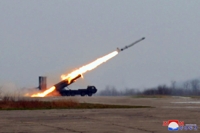 (2nd LD) N. Korea says it conducted 'super-large warhead' test for strategic cruise missile
(2nd LD) N. Korea says it conducted 'super-large warhead' test for strategic cruise missile -
 N. Korea says it conducted 'super-large warhead' test for strategic cruise missile
N. Korea says it conducted 'super-large warhead' test for strategic cruise missile -
(URGENT) N. Korea conducted 'super-large warhead' test for strategic cruise missile: KCNA
-
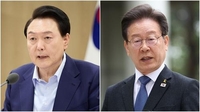 (LEAD) Yoon proposes first-ever meeting with opposition leader
(LEAD) Yoon proposes first-ever meeting with opposition leader -
 Gov't likely to accept university chiefs' request to lower med school enrollment quota
Gov't likely to accept university chiefs' request to lower med school enrollment quota














